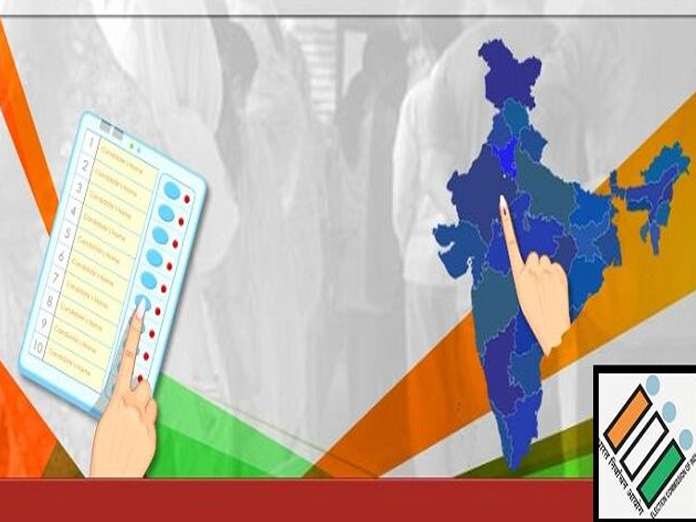Election Commission should ensure fair polls

In the coming elections of 2019, incumbency or antiincumbency vote in case of any party or its leaders will be generally cast by the voters contrary to the commonly prevailing notion among them that the candidates beg for votes during the election time and seldom implement their election promises when once they are elected to power after the hustings
In the coming elections of 2019, incumbency or anti-incumbency vote in case of any party or its leaders will be generally cast by the voters contrary to the commonly prevailing notion among them that the candidates beg for votes during the election time and seldom implement their election promises when once they are elected to power after the hustings. In fact, mostly the voters of respective constituencies take into consideration the developmental activity took place during the preceding term rather than the promises vouched in the election manifestos issued for the upcoming elections.
Hence, incumbency vote depends upon good impression and satisfaction which the people of certain constituency gain on the basis of development contributed by the people's representatives when they are in power. Hence, constituency development should be people-friendly and not politically- oriented nor should it be for gaining selfish and political mileage. In such a situation alone the politicians can win people's confidence and muster their trust and support. It is likely that the leaders face anti-incumbency in the elections when they lose confidence of the people in a situation when there is a discontented development that sets to belie the hopes of the latter.
In our Indian democracy where in there are a plethora of political parties, the pattern of governance across the nation is sub-divided into several modes based on the type of political party that is in ruling in a certain State or its constituency. Hence, in this fragmentation of our largest democracy on political, caste and religious lines, it has become abysmally difficult to simplify the electoral process that remains complex and complicated in its execution.
Further, the voting pattern across the nation is not uniform and straight forward as the criterion adopted by the voters in choosing their preferred political parties and their leaders is based on various factors which are distinct from state to state and also constituency-wise. As regards the issues that come up for consideration of the voters in regard to electing candidates at the national level are specific and distinct as compared to those we find at the state and local levels. All the more, the issues at the national level take precedence over those at the state level in view of the importance associated with the former.
The current national issues which reckon with the present situation in the country include reservations in education and employment for minorities, women and SCs & STs , farmers' suicides, women welfare and their security, price rise of several commodities following the imposition of GST, fuel prices, devolution of funds to the states by the centre, cyber crime, centre-state relations, investment and infrastructure for setting up projects in the nation, pension facilities for the aged people, visa security for overseas jobs, inadequate health security etc.
Further, local issues likeconstituency development that include provision of good roads, electricity, rural health care, optimum succour to the distressed farming community, social welfare schemes at the local level and educational facilities are likely to come up for the consideration of the voters in deciding the electoral fortunes of the candidates in fray during the ensuing elections. A political party that sets to address these several national and local issues could be the best choice of the voters during the coming elections.
In the year 2019, when India which has transformed into one of the top economies of the world is sending elected representatives to the next Lok Sabha, the Election Commission (EC) may have to adopt the following measures to ensure free, fair and meaningful elections:-
(1) The urban and semi-urban conglomerate of voters who outnumber that of rural populace should be persuaded to strictly exercise their franchise in large number without any sort of evasion.
(2) Offer of freebies and poll promises by all political parties must be made reasonable by all means during campaigning to be undertaken by those parties.
(3) EVMs must be made tamper-proof in order to dispel misapprehensions among the party leaders who allege and expose such faults against other parties.
(4) Distribution of liquor and money to woo the voters prior and during the polls must be totally restricted to ensure transparency.
(5) Pre-poll and exit-poll results should be banned on the media in order to avoid undue confusion and optimism among the public, as such poll results may not figure out correct picture of conducted polls at the fag end.
(6) Road shows prior to polls by political parties must be restricted in number and intensity in order to avoid poll commotion and violence and such open campaigning should be replaced with media campaigning by celebrities and political bigwigs.
This kind of practice will have a genuine impact on the voters without causing much ado in deciding the choice of the latter in a free and fair manner.
- Bh Indu Sekhar, Hyderabad














